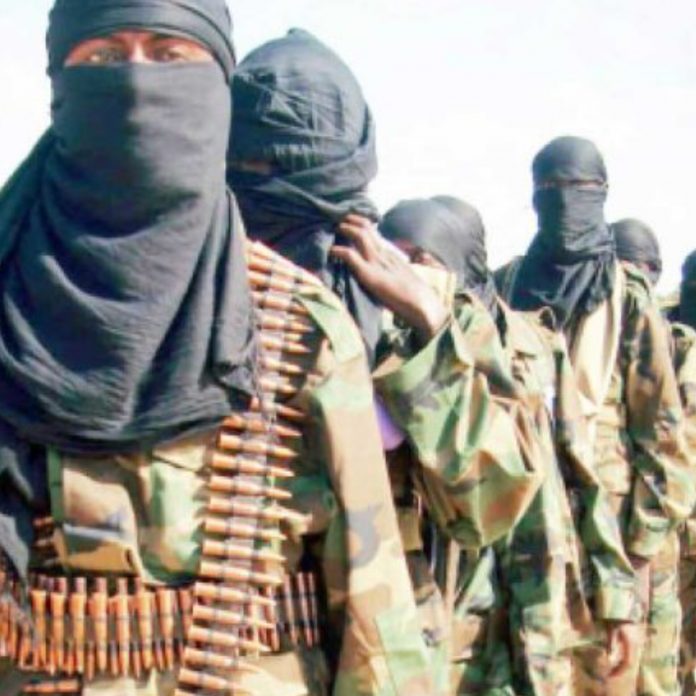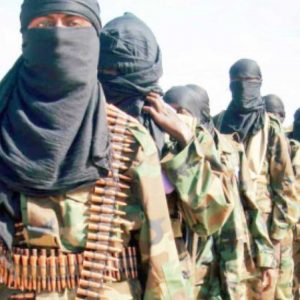Lakurawa terror group
About a week ago, the Defence Headquarters alerted the nation of the existence of another terror group which goes by the moniker Lakurawa, and which presence is strong in the north west. Less than twenty four hours after the disclosure, the terror group made a lethal debut in Mera in Kebbi State killing over 15 villagers and rustling over a hundred cattle.
This is unacceptable given that we are still grappling with existential threat of bandits, Boko Haram, Ansaru.
The lesson is that the national security response to terror has not sufficiently come strong as to constitute a powerful deterrent to the emergence of other copycats. The security architecture must be appraised and any lacuna for below bar performance must be treated with utmost despatch whether it comes in form of dearth of state of art equipment and technology, arms and ammunition or lack of morale boost, whatever it is, should be tackled.
NATIONAL WAVES commends the heightened pace of military onslaughts against these terror groups as significant gains have been made, especially many of the terror arrowheads have been eliminated. But more needed to be done.
Lakurawa once referred to as harmless herders has now morphed into a deadly terror.
Contrary to official reports, Lakurawa first arrived in the Gudu and Tangaza areas of Sokoto six years ago, following calls for self-help by some members of the communities.
About six years ago, locals in the Tangaza and Gudu areas of Sokoto raised an alarm over the suspicious activities of a group of herders operating in the Marake and Tsauni Forests. A police investigation at the time concluded that the armed group, known locally as Lakurawa, were merely herders and not violent.
Although the police suspected the group was heavily armed, they described them as seasonal visitors from the neighbouring Niger Republic.
The official narrative by the then police commissioner, Murtala Mani — after engaging with traditional and religious leaders in the affected area – was that the herders had left with their families, cattle, camels, and donkeys.
Earlier this week, however, the Nigerian Defence Headquarters declared the so-called herders are “a new terror group” affiliated with jihadists in the Sahel, a region that accounts for sizable chunks of global terrorism deaths.
“The terrorists took advantage of the gaps in cooperation between both countries and exploited the difficult terrains to make incursions in remote areas in some Northwestern states to spread their ideology,” said Edward Buba, the Director of Defence Media Operations.
The military, therefore, declared nine members of the group wanted. They are Abu Khadijah, Abdurrahman, Dadi Gumba a.k.a Abu Muhammed, Usman Shehu, Abu Yusuf, Musa Wa’a, Ibrahim Suyeka, Ba Sulhu and Idris Taklakse. Now, the police have claimed that the terrorist group operates in areas like Tangaza, Gudu, Ilela, Binji, and Silame, and is believed to have entered the border communities from countries like Niger, Chad, and Mali.
The terrorists preach in local Hausa and Fulfulde, imposing rules and levies on local communities, residents said. Sometimes, they “help” locals fight other terrorist groups operating in their territory to gain absolute control and wider influence.
Following their incursion about six years ago, the roving Lakurawa criminal organisation established camps — which it called Darul Islam — around the Gwangwano, Mulawa, Wassaniya, and Tunigara areas along Nigeria-Niger border areas. The sect has grown from less than 50 members to over 200, with young men aged 18-35. It embraces unorthodox practices and esoteric interpretations of the Qur’an.
A study by Murtala Ahmed Rufai, a professor at the Usmanu Danfodiyo University, Sokoto, noted that followers of the sect have a similar pattern of religious separatism with any other radical Islamic movements. The group claims ideological purity and avoids contact with the rest of the society. The Lakurawas use arms to intimidate and harass locals under the pretext of enforcing sharia in the affected areas.
The Lakurawas were herders who suddenly turned militant in the wake of the Malian crisis. Their presence in the communities along the Nigeria-Niger border in Gudu and Tangaza areas of Sokoto goes beyond the search for food and water for their cattle which they had been doing for years. Around October 2018, about 200 jihadis arrived in the Gudu and Tangaza area of Sokoto from across the border in Niger. Locals say they’re “herders, light-skinned, speaking Arabic and Fulfulde languages” from Mali.
Initially, they’re seen as a necessary evil, invited by local authorities in the areas to stem the tide of the raging violence blowing over their heads.
For nearly a decade now, the northwestern region has been a haven for rural terrorists. They’ve emptied villages and driven farmers from their farms, controlled a thriving kidnap-for-ransom enterprise that has disrupted the livelihood of the largely farming communities and impoverished families across the region.
In his paper, titled “Jihadization of Banditry”, James Barnett, a conflict and humanitarian crisis researcher, noted that members of the group conducted several attacks on local security forces, including an attack on a military base — a situation that prompted a joint military operation between the Nigerian military and their Nigerien counterparts to carry out an offensive against them. Although they desisted from conducting any more attacks, locals say they still saw members of the groups in the area after the military operations.
The re-emergence of the group, analysts say, is linked to the coup in the neighbouring Niger Republic, which disrupted joint military patrol along the border between Nigeria and Niger.
“Before they left after the offensive, they’d already indoctrinated some residents. In fact, the authorities did not even know that they had indoctrinated some of the locals who were left behind while some stayed in the forest around Tangaza and laid low.
The absence of a joint-border patrol since the military took over in Niger actually gave them free access. The group has been in that area since 2018. Most people in that area are aware of the group’s existence for a long time now,” a source familiar with the situation in the axis told HumAngle. He asked not to be named due to perceived security risks.
The northwestern region has been a hotbed of criminal gangs for years in Nigeria. Jihadist groups like Ansaru have also been able to stamp their foot. The region shares a long, porous border with the Republic of Niger, where the Al-Qaeda-linked JNIM and the Islamic State in Greater Sahara (ISGS) operate. The border with the Benin Republic, in Kebbi state, also offers a corridor for Sahelian terrorists, mostly as a logistics route or base. Its vast forests provide buffers for terrorists and are very likely vulnerable to house jihadists fleeing military offensives in neighbouring jihadi-infested countries.
With large swathes of ungoverned spaces and limited government presence across the areas, analysts are quick to point out that the region is fast becoming a ticking time bomb, especially with the influx of jihadists from the Sahel — a situation that’s likely to exacerbate the country’s already fragile security situation, particularly in the northern region.
Given the scenario painted above, it’s the considered opinion of NATIONAL WAVES that the federal government and military should redouble offensives against this network of terror groups given their threat to national security, economic stability and social relations.


